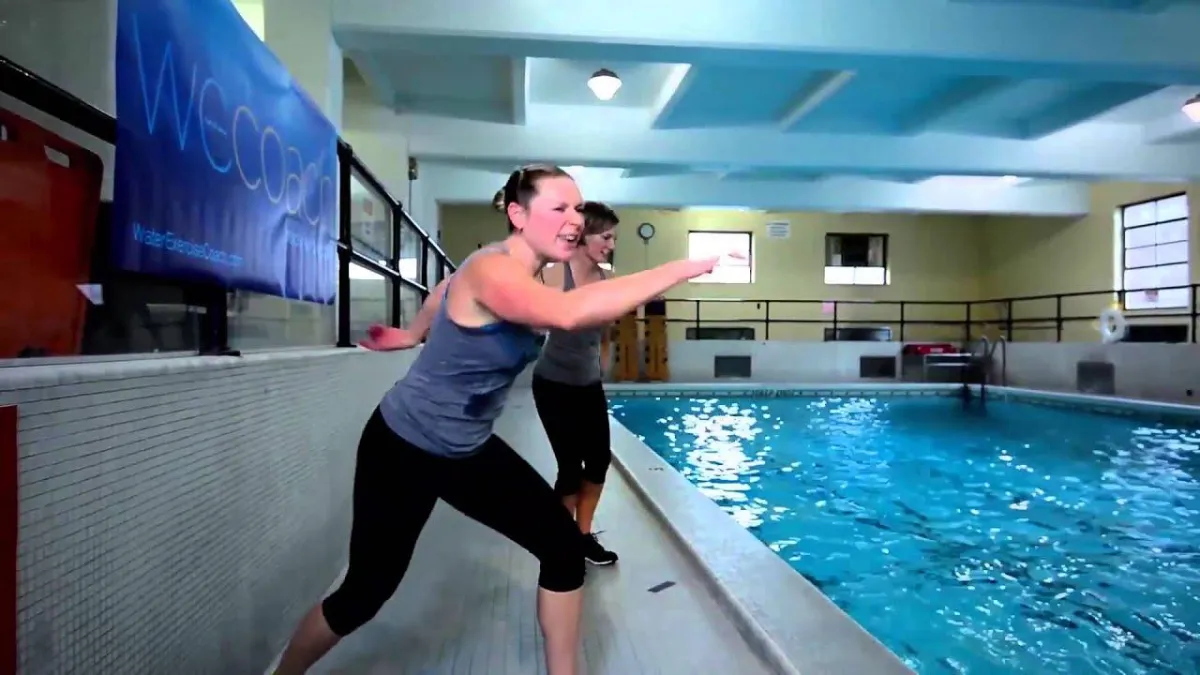Blog / News

Resource #3: Information to include in email blasts, on social media or newsletters.
Resource #3: Information to include in email blasts, on social media or newsletters.
Post #1: Water Exercise Boosts Brain Health!
Water aerobics, swimming, and even floating in water increases blood to the brain. This can decrease your risk of stroke and other diseases while having a positive impact on your cognitive function. Being in water improves circulation to help send more blood to the brain…when you add exercise there is an even more impressive impact! Think of exercise as brain food. It promotes brain growth, increases the release of happy hormones, and improves overall brain function. Want to think more clearly and learn faster? Add aquatic exercise!
Post #2: Water Wellbeing
Need to relax? Come take a dip in the pool! The water itself provides a stimulus to relax, resulting in amplified positive feelings. Water exercise, swimming and even sitting in a hot tub can reduce the risk of depression and anxiety while boosting your overall wellbeing.
Post #3: Breathe easier with Water Exercise
Breathe easier with water exercise! Exercising in water increase increases the work of breathing. In fact, it is 60% harder to breath in water than it is on land. This helps to make your breathing muscles stronger resulting in greater ease of breathing on land. Vertical water exercise, swimming or even just breathing in shoulder depth water can improve your respiratory systems strength and endurance.
Post #4: Improve Heart Health with Water Exercise
Water exercise, vertical or horizontal, is beneficial for heart health. Being in water improves the efficiency of your heart allowing it to beat fewer times to provide the body with the blood that it needs. Water exercise can help improve your blood pressure while enhancing your cardiovascular system. The water may also be a more comfortable place to exercise regularly, because regular exercise is what it takes to keep your heart healthy! The American College of Sports Medicine (ACSM) recommends at least 150 minutes weekly of moderate to vigorous intensity exercise. That means if you sign up for a water exercise class that meets 3 times weekly for 50 minutes, you have hit your minimum goal for heart health!
Post #5: More Mobile through Water
Mobility is important for performance in life and athletics. The water can help you move better by providing support or resistance, allowing freedom of movement without fear of falling, and challenging muscles in a balanced way. Something as simple as walking in the water can provide an opportunity to strengthen the muscles that support your posture, improve balance, and increase your lower body mobility.
Post #6: Weightless with Water Exercise
Don’t be weighed down by exercise. Just add water to reduce your weight bearing load while you exercise. The deeper you go in the pool, the less you weigh. This can make exercise feel better, help you to recover from a hard workout or injury, or make exercise more fun. Exercising in deeper water can activate more muscles while giving your joints a break. Individuals with back pain, arthritis, knee and hip pain may find deep water a more comfortable alternative to exercise.
Didn't Find What You Were looking For?
If you have questions on the content here, or if you'd like to speak with Lori about a training or speaking engagement, feel free to contact us by filling out the form below!
- Copyright 2026 Lori Sherlock | All Rights Reserved.

